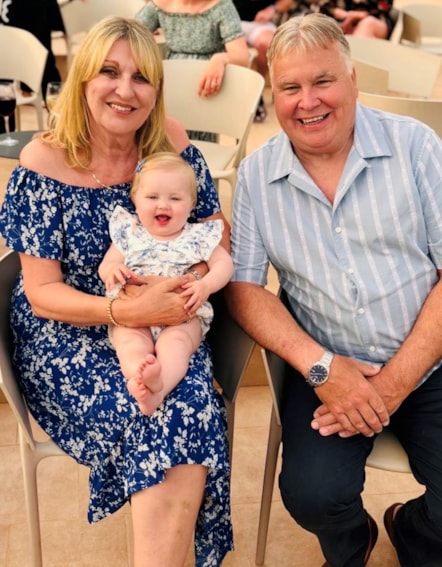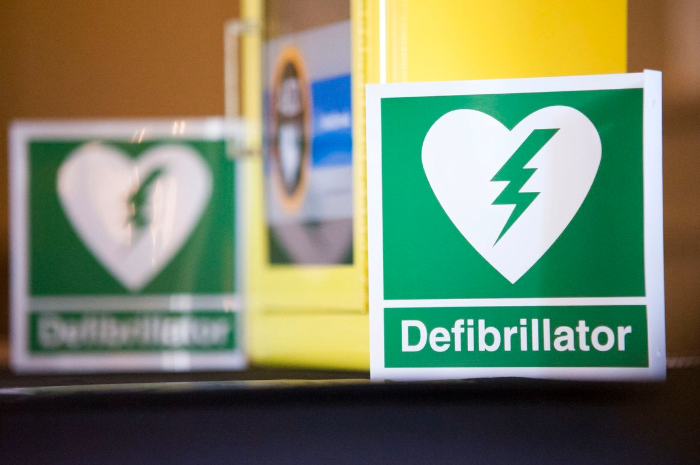Grandmother cardiac arrest survivor backs new campaign to place defibrillators in deprived areas of London
A 63-year-old woman who survived two cardiac arrests and was put into a medically induced coma for several weeks to aid her recovery is backing a new campaign to get more defibrillators into the areas of London that need them most.
Sue Whitham had returned home from work and was eagerly awaiting a phone call about the arrival of her new granddaughter, who was due to be born at any moment, when she suffered a sudden cardiac arrest at home. Her husband Julian called 999 and began chest compressions until paramedics from London Ambulance Service arrived at the scene.
Sue was introduced to baby Sienna once she was discharged from hospital and is now backing the new London Heart Starters campaign.

The campaign, led by the dedicated London Ambulance Charity, aims to improve survival rates for people who experience a cardiac arrest by raising funds to purchase additional defibrillators where they are most needed and teaching more people cardiopulmonary resuscitation (CPR) skills.
One of the best ways to support our campaign is by joining the charity’s fundraising walk, The London Life Hike, which is taking place on Sunday 8 September.
Sue said: “Performing chest compressions and using a defibrillator are the best ways of improving someone’s chances of survival when in cardiac arrest. The London Heart Starters Campaign will help fund defibrillators for people and their loved ones, which is why we’re taking part in The London Life Hike.”
10 years before her cardiac arrest Sue, who lives in Hanworth, had worked closely with London Ambulance Service to install four of the life-saving devices at St Mary’s University in Twickenham where she worked. These are available for students and staff at the university and the local community.
Sue said: “Fast forward 10 years and completely out of the blue, I suffered a sudden cardiac arrest at home.”
Luckily Julian performed chest compressions and quickly dialled 999. London Ambulance Service call handler Mattie Wright guided and reassured him over the phone while an ambulance crew was dispatched.
She added: “Thanks to my husband giving me CPR, the London Ambulance crews and the team at St George’s Hospital I have been very fortunate to survive.”
As part of her treatment, Sue had to be placed in a medically induced coma for several weeks. When Sue regained consciousness at St George’s Hospital she was able to meet her granddaughter Sienna who was born as Sue fought for her life. And thanks to ongoing support from the NHS she has made an excellent recovery.
Sue said: “I had longed for a granddaughter and when we found out about her I was just so excited for a little girl.”

Recent analysis by the London Ambulance Service has revealed that dozens of neighbourhoods are ‘defibrillator deserts’ – where there is little or no access to a life saving device.
The data has revealed large discrepancies between communities in outcomes for cardiac arrest and the availability of life-saving devices. Households in more deprived areas are more likely to be in an area in greater need of additional defibrillators.
Sam Palfreyman-Jones, Head of First Responders and Paramedic at London Ambulance Service, said: “Knowing what to do when someone is in cardiac arrest and having the confidence to act quickly will save lives.
“The first few minutes before an ambulance arrives can make all the difference. Over 75 percent of cardiac arrests happen at home, so by learning these simple skills, you could save someone you love. And that’s why it’s also so important to have defibs installed near where they live so they have a great chance of survival.”
Find out how you can have a fun day out while raising money for our life-saving Heart Starters campaign on our dedicated London Life Hike page.

Follow us on social media: